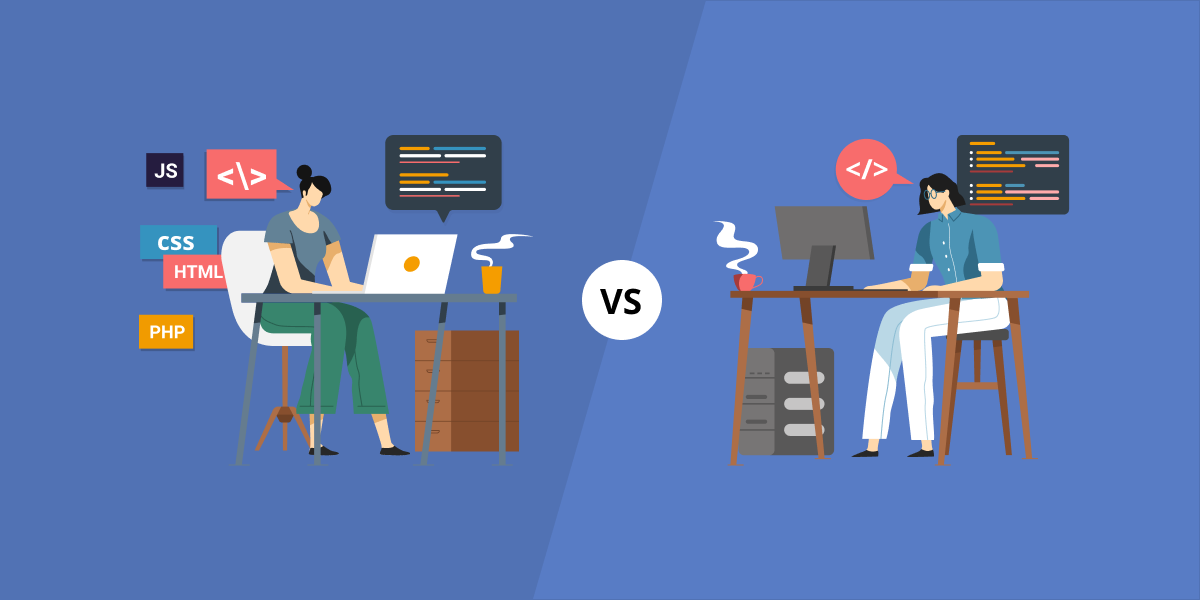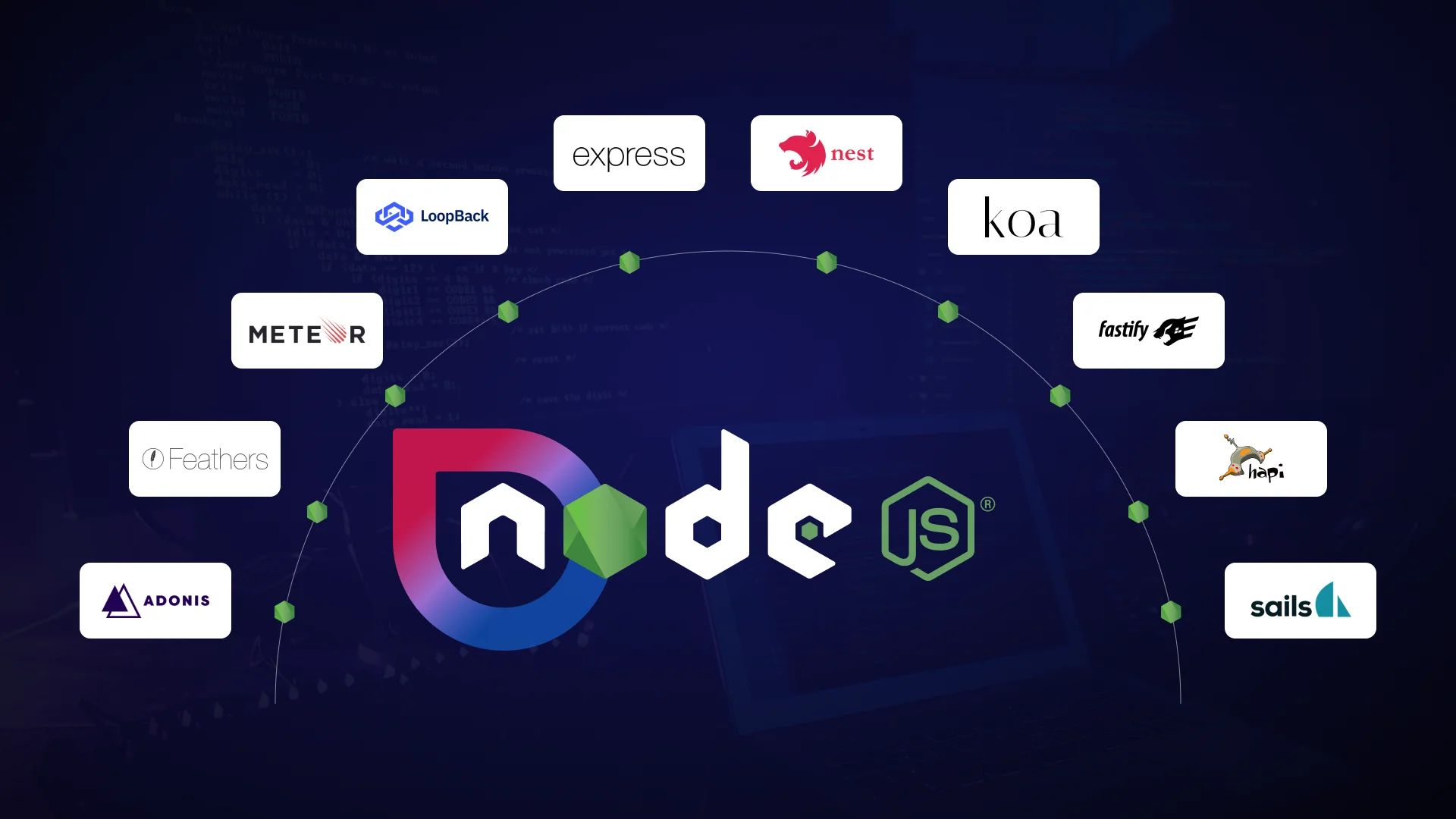Full Stack Developers vs. Specialized Developers: Who is the Best for Your Business?
- Web
- January 24, 2020
Jack of all!
That figure of speech seems to make more sense when you start running a business and looking for people who can handle more than one task. Professionals dabbled in different skills seem reliable.
They’re multitalented and can be put to work in varied fields. Lack of manpower? High overhead expenses? Oh, it’s all sorted, right?
Well, not always.
As it is with other industries, Information Technology, too, is susceptible to such notions. In search of multitalented brains, I’ve looked for the right people for not-so-right job roles. I’ve been there, done that. And that’s precisely the reason why I can tell you, it’s not always a ‘p implies q’ implication.
Hiring developers have been one such instance when I had to constantly fight my conscience. I struggled between the choices of hiring specialized and full stack developers and almost always come to conclusions that weren’t best suited for my business. Result? The work eventually suffered and goals remained unmet.
Gathering every bit of my experience, here is what I suggest – hire people according to the need of the hour. How? Before we delve deeper, let’s find out who’s a full stack developer and who’s a specialized developer.
Full Stack Developer Vs Specialist Developer
Full stack developers are developers specializing in both the front-end and the back-end. In contrast, specialized developers are experts in a single discipline, either the front-end or the back-end.
Front-end development involves the visual part of the application, user interaction, etc. The back-end development involves the server side of the application.
Who is Best for your Business: Full Stack Developers or Specialized Developers?
The opinion is divided when it comes to choosing a full stack developer or specialized developer.
Many (including the past me) think versatility is ALWAYS a boon. But, now that my bubble is burst, I can eliminate the confusion for you and offer more clarity.
Let us discuss their skills, strengths, weaknesses and more.
Skillset of Full Stack Developers
Full stack developers know multiple technologies and languages. From Frontend/Backend development and markup languages (CSS, HTML) to databases (MySQL, Firebase, etc) and software testing, these developers have a broad skillset. A full stack developer is usually paid higher than a specialized developer.
Full stack developers are in high demand as they save time and lower costs. According to the U.S. Bureau of Labor Statistics, the job openings for full-stack Development will increase from 135,000 to more than 853,000 by 2024.
It is one of the highest paying jobs, with experienced professionals getting an annual package up to $110,737 per year. The full stack developer’s job stands at number 2 position based on their scores.
A full stack developer can also fill the role of a CTO. If you are looking for a CTO who can make decisions based on the various facets of the project, a full-stack developer is better than a specialized developer.
Pros of Full Stack Developer
Quick Identification of Issues
Full stack developers can easily identify and fix the issues with a product as they are familiar with all the stages of software development. They can cut down the time consuming activities, and can quickly fix the problems.
Quick Learners
Full stack developers are quick learners and can grasp new concepts easily. Trust me when I say this, they can also be easily trained on new concepts.
Economical
Full-stack developers can replace two or more specialized developers. You can have a small powerful team rather than a large team. This means a lower workforce and savings to the company.
Reduced Development Time
Full stack developers can easily switch between the tasks and from the client-side to the server-side. This eliminates the confusion between both sides.
A full-stack development is more independent compared to a specialized developer. Thus, the overall development time is reduced.
Reduced Number of Meetings/Discussions
Meetings and discussions among the teams get reduced when full-stack developers are involved. This means that more time can be spent on development.

Cons of Full Stack Developer
Lack of knowledge of Latest Trends and Technologies
Working in a wide range of fields means that a full stack developer doesn’t have the time to keep up with the latest trends and technologies. If you are planning to incorporate the latest feature in your product, a full stack developer might find it tough to implement it.
Difficulty in Tracking the Project
Full stack developers work on huge chunks of a project instead of breaking it into smaller tasks. This makes it difficult to track and identify the completeness of the project.
Average Service
The full-stack developer can be a jack of all trades and master of none. If there is any situation that requires expert attention or advice, a full stack developer might not perform well.
Lack of an in-depth understanding of the subject can cause hindrance, leading to average service and not the best service.
Attrition
Full-stack developers can have high attrition rates. Having knowledge of various skills means that they would have a lot of demand in the marketplace.
Availability
Finding a number of full stack developers can be tough. If you are looking to expand your team of full stack developers, you might be disappointed. You might feel that it is better to have relied on a team of dedicated developers.
A software company should also be careful of high dependency on a single or handful of full stack developers. If a full-stack developer with a high dependency quits the company, it can impact the flow of the project.
Since full-stack developers take up a huge chunk of the project, it can be tough for the company if a reliable resource quits right in the middle of the project. The resource can be tough to replace.
Skillset of a Specialized Developer
Specialized developers are experts in a specific area. They might have gained in-depth knowledge and troubleshooting abilities from years of experience.
They are your go-to resources for a specific area, from design and databases to architecture. Specialized developers can make strong teams, and can complete the work on time, perfectly.
Pros of Specialized Developer
High Quality Work
Since the specialized developers are experts in their technology, you can expect quality work from them. Their output is generally superior compared to the one from full-stack developers.
Expertise in Latest Trends and Technologies
Since specialized developers are focused on a specialized area, they keep themselves updated with the latest trends and technologies, which in turn improves the overall product quality.
Easy Allocation of Responsibilities
With specialized developers, the allocation of work and responsibilities is easy. The work can be divided into tasks and allocated to the specialized developers.
Easy to Hire
Hiring dedicated developers are easier compared to hiring full stack developers. With a wide range of talent pool available in the market, the company can analyze and determine the best resource for the company.

Cons of Specialized Developer
High Investment
Compared to a full-stack developer, having specific developers for various areas costs higher. Considering that a full-stack developer can replace two or more specialized developers, the overall investment is higher for the company.
Dependency
In a project, a specialized developer has a greater dependency on the other one. In some cases, a developer cannot go ahead with his task unless the other one has completed.
Coordination
Coordination has to be ensured between various teams involved in the project. Understanding the other team is important. To facilitate coordination, meetings and discussions may have to be scheduled.
When to Choose a Full-Stack Developer?
Small Projects
If the size of the project is small to medium, it is preferable to hire a full stack developer. He/she can cover a range of technologies and switch between tasks and meet the expectations.
Low Complexity Projects
A full stack developer can easily handle low complexity projects. However, complex projects require in-depth knowledge which the full-stack developer may not have.
Low on Budget
A full stack developer is highly economical compared to specialized developer. If you are low on your budget, hiring a full stack developer is better.
Small Businesses/Startups
Small businesses and startups can greatly benefit from full-stack developers. Startups have time and budgetary constraints. If these aspects are considered, full stack developers can be highly beneficial.
Time Constraints
If you have to complete the project within a short timeframe, hiring full stack developers is recommended. They can use their expertise in the various areas and switch between the tasks to complete the project in a short time frame.
Read also: Important Tips to Consider While Hiring Best Full-Stack Developers
When to Choose a Specialized Developer?
Large Projects
Large and long-term projects require a team of specialized developers. The project can be divided into small tasks and can be completed in an organized manner.
High Complex Projects
High complex projects require in-depth knowledge and expertise. Specialized developers can leverage their experience and expertise to handle complicated projects.
Project Quality
Premium results warrant expertise and in-depth knowledge. If you are looking for high-quality output, prefer a specialized developer.
Read also: How to Hire Dedicated Developers for Your Project
Find your Hero
While expertise is appreciated and admired, a skillful person who can handle several tasks, fix the issues and bring about the project to quick completion is also regarded highly.
Nevertheless, hiring a full stack developer or a specialized developer is based on your requirements and expectations. You can analyze the type of project and the expected outcome, and make a decision that brings the best results for your company.
To conclude, a jack of all sometimes turns into a master of none. So, choose wisely.
FAQs About Full Stack and Specialized Developer
A full-stack developer is an expert who can work on both in the front end and the back-end of any application. A full stack developer has the ability to work on all aspects involved in building web and mobile app.
As the name suggests, a specialized developer is a developer specialized in either front-end or back-end development. It means that the specialized developer is the go-to guy for any particular subject such as design, database, or entity framework.
If you have a great idea that has to be translated quickly to a product, without the hassle of a large team, hiring full stack developers can do wonders. This is especially useful in case of startups who have less time, resources and budget.
If you have a highly complex and long-term project than it is safe to hire a specialized developer. Specialized developers can leverage their experience and expertise to handle complicated projects.
Hiring a developer might be the most significant part of developing your website or mobile app. There are many resources to hire a dedicated developer for your projects like LinkedIn, Upwork, Toptal, or Clutch. But, the most trusted way is to hire a developer from a reputed company like Mindinventory.













